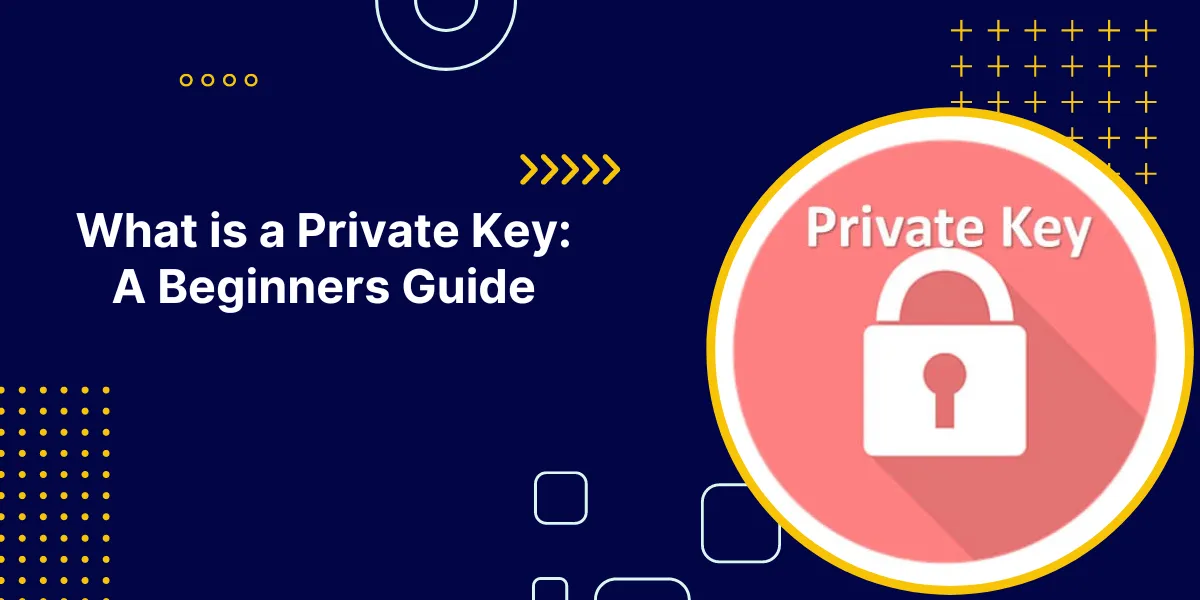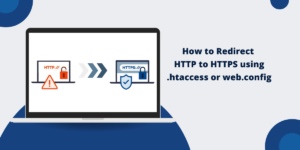Private Key: What It Is, How It Works, Best Ways to Store
A private key is an integral component of public key cryptography, which is a popular method of securing communications and transactions online. This long-form article will provide an in-depth overview of what a private key is, how it works, and the best practices for storing private keys securely.
What is a Private Key?
A private key is a long, randomly generated string of characters that is kept secret and known only to the owner. Paired with a public key, the private key allows the owner to digitally sign transactions and messages in a way that provides cryptographic proof of ownership and authenticity.
Some key things to know about private keys:
- The private key is mathematically linked to a corresponding public key but cannot be reverse engineered from the public key.
- Possession and control of the private key is proof of ownership of the funds or identity linked to the paired public key.
- The private key must be kept completely secret and safeguarded properly, because anyone who gains access to your private key gains access to your money or identity.
- Private keys are used to authorize transactions, log into wallets, encrypt and decrypt messages, and digitally sign documents.
- Private keys are long strings of randomized numbers and letters, usually 64 characters long or longer.
Ports range from 0 to 65535, but only ports 0 to 1023 are reserved for common protocols and services. The remaining ports between 1024 to 65535 are available for any application.
How Private Keys Work
Private keys enable the cryptographic functions of public key cryptography in the following ways:
Digitally Signing Transactions
When you initiate a transaction from your cryptocurrency wallet or other account, your private key digitally signs the transaction to authorize it. Your private key produces a unique digital signature that verifies you approve the transaction.
Decrypting Messages
Your private key can decrypt messages that were encrypted using your public key. This provides secure communication where only you can read messages intended for you.
Proving Ownership
Possession of the private key that matches a public address is proof you own that cryptocurrency or account. You can use your private key to import wallets or accounts to prove ownership.
Generating Public Keys
Your private key is used to mathematically generate your unique public key. While public keys can be calculated from private keys, the reverse is near impossible.
How Does a Private Key Work?
Cryptographic private keys rely on advanced mathematics to enable their various functions. Here is a simplified overview:
- Private keys are generated using randomized data to produce a long string of numbers and letters. This ensures randomness and unpredictability.
- This randomized string is then used as the input for an elliptic curve equation or other cryptographic algorithm.
- Complex mathematical operations are performed to transform the private key into an encrypted output.
- This output is your public key – a cryptographic code linked to your private key.
- The same private key will always produce the same public key when the algorithm is run.
- The public key can then be shared publicly and used by others to interact securely with the owner of the private key.
- When the private key signs a transaction, encrypts data, or performs another action, the reverse algorithm is applied using the private key to produce a cryptographic output verifying the owner’s authorization.
While the math is very complex, in essence the private key enables asymmetric cryptography where the private key can encrypt/decrypt/sign data in ways that are easy in one direction but near impossible to reverse. This is what provides the security benefits.
Main Uses of a Private Key
Private keys provide major functionality in various cryptocurrency, cryptography, and security applications. Here are some of the top uses of private keys:
Accessing Your Wallet
Your private key enables access to any wallet or account associated with your public key address. You can use the private key to import your wallet on new devices or regain access if you lose access to your wallet. Think of it like the master password to your cryptocurrency holdings.
Authorizing Transactions
Any time you send cryptocurrency or execute sensitive account actions, your private key digitally signs the transaction to authorize it. This provides certainty the action was initiated and approved by the legitimate owner.
Encrypting and Decrypting Data
By using your private key with your public key, you can encrypt messages, data, or files that only you can decrypt. This enables secure communication channels.
Generating Your Public Key and Address
Your unique public key and associated wallet address are generated mathematically based on your private key. You need your private key to derive your identity on most blockchain networks.
Proving Ownership
Possession of a private key that matches a public address is proof of ownership of that account and its assets. You can use your private key to recover and control accounts on many systems.
Accessing Decentralized Apps
Many decentralized apps and services require your private key to authenticate access and use features. It acts like your digital identity across many DeFi platforms.
Signing Documents and Agreements
Your private key can digitally sign legal documents, contracts, and other agreements to prove they originated from you. This provides non-repudiation.
As you can see, the private key unlocks a broad range of critical functions – which is why keeping it safe, and secret is so important.
Best Practices for Storing Private Keys
Because private keys enable access to your money and accounts, proper storage is essential. Here are some best practices for private key storage security:
Use a Hardware Wallet
Hardware wallets like Trezor or Ledger offer excellent private key security. The keys are stored on the device and never exposed online. You have to confirm transactions physically on the device. This results in excellent private key protection.
Encrypt Your Private Keys
If storing private keys on your computer or cloud backups, encrypt the keys with strong passwords. Make sure to keep the passwords protected separately from the encrypted keys for added security.
Use a Reputable Wallet Provider
Mobile and web-based cryptocurrency wallet services like Coinbase and Blockchain.com provide strong private key security features like two-factor authentication and mandatory email confirmation of withdrawals. Use a reputable provider with robust security practices.
Store Offline in Multiple Places
For extremely important keys, create multiple copies on USB drives and paper printouts. Store them in geographically separate safe deposit boxes and other very secure locations to mitigate the risk of physical loss.
Never Share or Post Publicly
Treat your private keys with the utmost secrecy. Never post a photo or screenshot that unwittingly contains a private key. And never share your key except with utterly trusted parties.
Use Complex Passwords
For private keys you store digitally, use extremely strong passwords of 16+ characters, with symbols, numbers, upper and lowercase letters. Enable two-factor authentication as well for critical accounts.
Avoid Online Exchanges
Try to minimize the assets held on exchanges. Move funds into wallets where you control the private keys whenever possible. Exchanges have been frequently hacked with private keys compromised.
Test Recovery Procedures
When you set up a cryptocurrency wallet, test restoring it from the private key backup to ensure your backup procedures work properly. Periodically test restore from different backup locations.
Shard/Split Keys
For extra security, you can shard or split a private key into multiple pieces that must be recombined to work. This creates more obstacles for hackers and thieves.
Following best practices for private key storage goes a long way towards keeping your cryptocurrency and accounts safe and secure.
Risks of Mishandling Private Keys
Given the power private keys hold over your accounts and money, mishandling them poses major risks including:
- Permanent Loss of Funds: Lose your private keys, and you’ve lost your ability to access funds forever. There is no recovery option if you misplace keys.
- Theft Of Funds: If someone else gains access to your unencrypted or unprotected private keys, they can steal your cryptocurrency and assets.
- Account Takeover: Any account associated with compromised private keys is at risk of malicious takeover. Hackers can gain complete account control.
- Public Exposure: Posting or leaking your private keys publicly means anyone can access and drain your funds. Social engineering attacks can trick users into accidentally posting private keys.
- Lack Of Backups: Without proper backups of your private keys, you risk losing access to your accounts if devices containing the keys are damaged, hacked, or lost.
- Weak Passwords: Using simple passwords to encrypt stored private keys allows hackers to compromise your keys through brute forcing or guessing.
- PIN Code Interception: For hardware wallets, PINs that unlock devices can be intercepted by hackers, allowing key extraction.
- Unsafe Online Storage: Storing unencrypted private keys in online databases and cloud storage creates risks of server-side hacks that steal keys.
Mishandling private keys essentially forfeits control over your accounts and money to hackers or to loss. Following best practices is crucial.
Frequently Asked Questions About Private Keys
What exactly is a private key in cryptography?
A private key is a long, randomly generated string of letters and numbers that is kept highly secure. Paired with a public key, the private key allows the owner to digitally sign transactions, encrypt messages, control access, and prove identity. The private key enables the cryptographic functions made possible by public key cryptography.
How is a private key generated?
Private keys are generated using randomized data and input into a cryptographic algorithm. This produces a randomized output that is the private key. Randomization ensures unpredictability, making it impossible to reverse engineer the private key. Keys should be at least 64 characters long for security.
What happens if you lose a private key?
Losing a private key without having a backup is catastrophic. The funds and accounts linked to that key are permanently irretrievable if you have no way to access the private key. There is no password reset or recovery option. This why safe backup procedures are critical.
Can a private key be hacked?
Private keys themselves are not hackable due to their cryptographic security. However, if stored improperly in a hot wallet or unencrypted online, the private keys can be stolen by hackers. This allows them to steal funds and take over accounts. Proper key storage is vital.
What’s the difference between a private key and a password?
A password authenticates you to an existing account. A private key serves a much broader range of cryptographic functions beyond authentication, such as irrefutably proving identity and ownership of funds. Possessing the private key for an address is far more powerful than just a password.
How do hardware wallets protect private keys?
Hardware wallets keep private keys in a secure offline environment, away from online threats. The keys cannot be digitally accessed from outside the device. You have to confirm transactions physically on the device for them to be signed with your private key. This air-gap provides excellent protection.
Can I store a private key on paper?
Yes, you can create paper copies of private keys to store them offline. This avoids digital theft risks. However, paper records can be lost, destroyed, or stolen also: so you need to keep any paper keys stored very securely in locked locations.
What is a mnemonic recovery phrase?
A mnemonic phrase is a human-readable string of common words representing a private key. If arranged correctly, the phrase can restore access to accounts if you lose private keys. Mnemonics should be kept securely like any other private key backup.
Are my private keys protected on a crypto exchange?
While exchanges have security measures, you are ultimately trusting them to safeguard your private keys. Exchanges have suffered major hacks and losses in the past. For better security, withdraw to an external wallet where you control the private keys.
How can I backup my private keys securely?
Recommended backup methods are offline/air-gapped locations like encrypted USB drives, hardware wallets, paper records, and geographically distributed safe deposit boxes. Password-protect and encrypt private keys wherever digitally stored.



